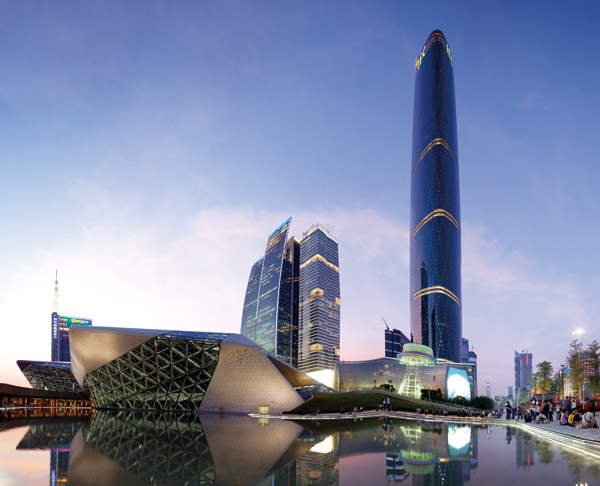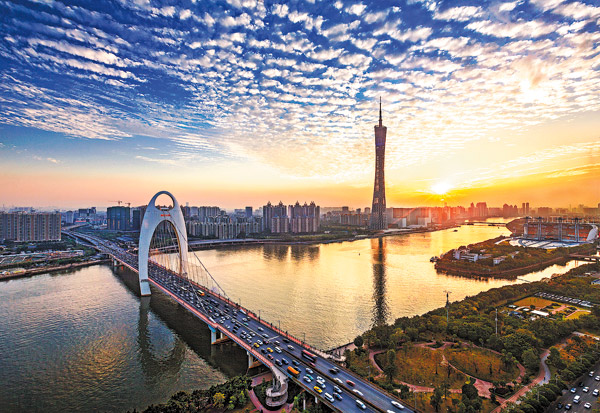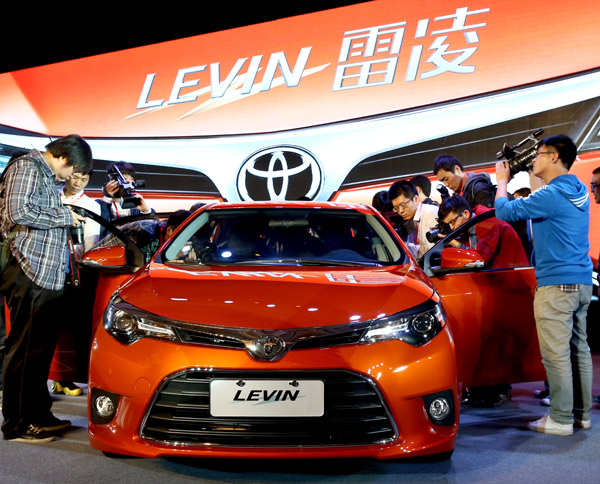Boom times arrive for city's headquarters economy


Strategists burn the midnight oil, as they map out their national expansion projects
The corporate headquarters economy is booming in Guangzhou, according to the city's commission of commerce, with 287 of the Fortune Global 500 top companies this year hatching a record 921 projects in the city to expand their operations in China.
Among them, at least 120 enterprises have set up their headquarters or regional headquarters-and more than half of them have launched investments in the city.
Most of them are engaged in manufacturing and modern service industries, which have made important contributions to the shaping of a modern industrial system in Guangzhou.
China Southern Power Grid and Guangzhou Automobile Co are among the Fortune Global 500 companies that built their global headquarters in Guangzhou.
The city is home to the China headquarters of such big names as Procter and Gamble and insurance giant Allianz, as well as functional headquarters of Sinomach Intelligence Technology and the global headquarters of Wanda Sports.
In the automobile sector alone, three major Japanese automakers-Honda, Toyota and Nissan-h(huán)ave set up their production bases in Guangzhou.
Auto part manufacturers followed in their steps and built their business branches in the city, which has enabled Guangzhou to become China's important automotive and auto parts production and export base.
The establishment of COSCO Shipping Bulk Co's headquarters and China Eastern Airlines' Guangdong base there has given a strong boost to the evolution of Guangzhou as a sea and air transportation hub in China.
Guangzhou's development is backed by the city's strong innovative research capabilities.
In 2016, Guangzhou's companies and individuals received 16 National Science and Technology awards, which accounted for half the number in Guangdong province.
The city has 210 national and provincial-level laboratories.
The publication of papers from local individuals and companies listed in the Scientific Citation Index grew by 7.9 percent last year. The total number of the papers reached 20,519, higher than Hong Kong and Singapore.

In recent years, Guangzhou has attracted a large number of innovative research projects to upgrade its industrial chain.
Cold Spring Harbor Laboratory, a globally leading institution based in the United States which focuses on bio-medical science research, signed a memorandum of cooperation with the Guangzhou Development District in August.
The agreement involved the construction of the Cold Spring Harbor (Guangzhou) Research Institution-a commercialization center for leading scientific and technological achievements-and the Cold Spring Harbor (Guangzhou) Biological Medicine Fund.
Cold Spring Harbor Laboratory has become home to eight scientists who were awarded the Nobel Prize in Physiology or Medicine.

In July, US industrial behemoth General Electric announced plans to build an $800-million bio-campus in the Sino-Singapore Guangzhou Knowledge City, which was designed to be a leading biopharmaceutical and healthcare industrial park in Guangzhou.
"For hundreds of years, Guangzhou has been a hub of trade and commerce," said Luo Zheng, an official at Guangzhou commission of commerce.
"Opening-up and innovation have been long regarded as the city's spirit."
At present, Guangzhou has attracted investors from more than 130 countries and regions around the world, and set up business and trade ties with more than 220 countries and regions, Luo said.
"The centuries-long tradition of commerce, its unique geographic location as China's southern gateway to the sea and its extensive transportation network, as well as the strong support from the manufacturing industry in the Pearl River Delta, have endowed Guangzhou with advantages in developing trade and investment," he added.
By the end of September this year, there were about 30,000 companies in Guangzhou with funding from overseas investors, involving investments of more than $85 billion, according to Luo.




































